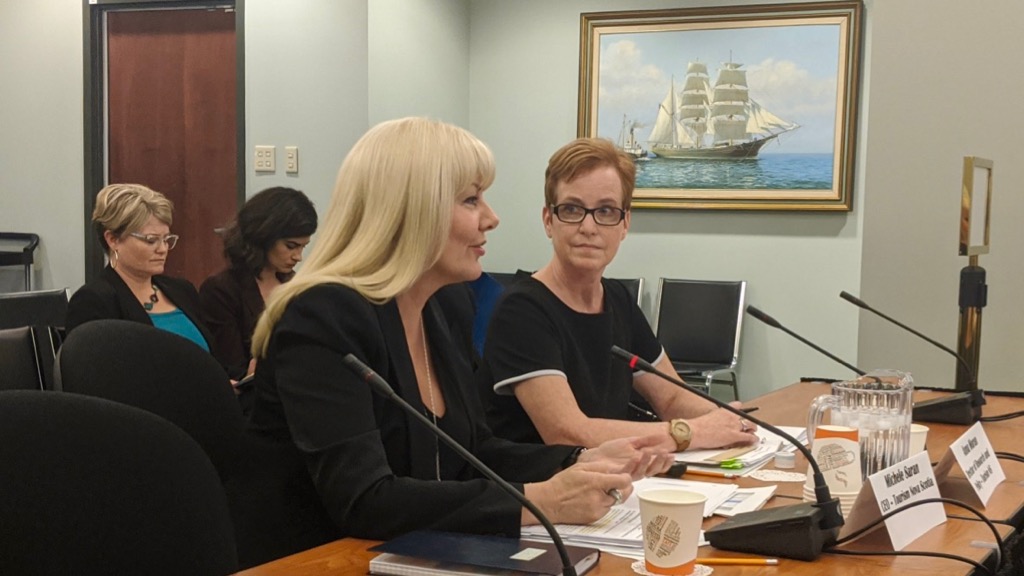Two sides to Airbnb for Tourism Nova Scotia
MLAs concerned short-term rentals take housing away from Nova Scotians

caption
Michele Saran (left), CEO of Tourism Nova Scotia, answers questions on Aribnbs from MLAs on Tuesday.Airbnbs may be a problem for some, but tourists expect them, the province’s top tourism official says.
“This is not a genie that’s gonna go back into the bottle,” Michele Saran, the CEO for Tourism Nova Scotia, said Tuesday. “This is something that our visitors are demanding.”
Saran appeared before the natural resources and economic development standing committee of the legislature. She presented a report on tourism, and MLAs questioned her on tourism’s relationship to short-term rentals.
Some MLAs were concerned about the lack of housing, partly caused by short-term rentals, for both workers and visitors in rural areas. Related stories
The Nova Scotia government and the Halifax Regional Municipality have been looking for ways to regulate short-term rentals like Airbnbs. Surveys on short-term rentals for the province and HRM were completed this month.
A report from McGill University released this month for Halifax’s short-term rentals found that Halifax has a low rental vacancy rate of only 1.6 per cent. Housing that is put up on short-term rental sites like Airbnb limits long-term renters’ ability to find a place to live.
Saran noted that regulation is a municipal issue.
Regulating rentals
NDP MLA Lisa Roberts is concerned about a lack of affordable housing across the province. For example, she said, Lunenburg is having trouble keeping staff in the area because they can’t find housing, and staff are needed to run local businesses for tourists.
Roberts suggested temporary structures like mobile homes and luxury tents for tourists might be preferable to converting full season homes into Airbnbs.
Saran agreed with MLAs that more housing is needed in rural areas, but said accommodation sharing sites like Airbnb are attractive to potential visitors.
“If there’s no place to stay, people won’t come,” Saran said. Airbnb “is a distribution channel that our visitors are demanding to use.”
She said if there are no Airbnbs listed in Nova Scotia, that’s millions of people who are missing out on hearing about the province.
Anna Moran, director of research and policy for Tourism Nova Scotia, took questions with Saran. She said unique houses to vacation in on Airbnb “can be, in and of themselves, a reason to come to Nova Scotia.”
In the overall results for 2018, Nova Scotia had fewer visitors in 2018 than 2017. The Canada 150 celebrations drew in lots of tourists in 2017, according to reports from Tourism Nova Scotia. Still, the province earned more revenue than it did in 2017 with a total of $2.61 billion, continuing its four-year run of growth.
About the author
Lucia Helder
Lucia Helder has interned at Maine Public and is the copy editor of the Dal Gazette.

S
Shelley Beairsto
J
Jon